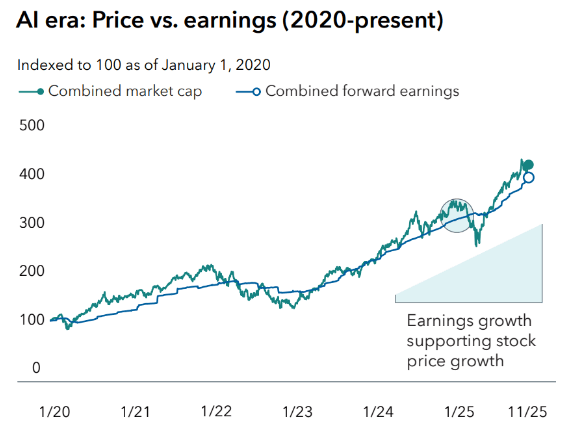If our recent webinar, Apollo Lupescu reviewed the lack of correlation between election outcomes and market performance.
He grants that elections have major consequences for taxpayers, businesses, and the economy – e.g., tax policy, regulation, spending. Yet, often, the effect for markets is unpredictable and may defy expectations.
It’s a great discussion. Click here if you’d like to watch a replay.
We’ll add a couple points. First, the awesome power of compounding far, far, far exceeds the impact of political parties.

Second, while elections are unreliable signals for investors, they produce actionable information for financial planners.
The party in the White House and in power in Congress will influence tax brackets, estate taxes, retirement plans, and many other rules and regulations.
For example, 2017’s Tax Cut and Jobs Act (TCJA):
- Reduced most individual tax brackets
- Increased the standard deduction
- Created the $10,000 State and Local Tax (SALT) Deduction Limit
- Doubled the estate tax exemption to $11.2 million (in 2018)
The TCJA shaped many planning strategies in recent years – e.g. Roth conversions, charitable giving, and estate tax minimization.
The TCJA will expire at the end of 2025. We are paying close attention to what, if anything, replaces it. The election may influence strategies we recommend this year and next.
We are paying close attention.
Get the BEW Newsletter Direct to Your Inbox
Stay informed with timely perspectives and market insights from the BEW Invest team.



